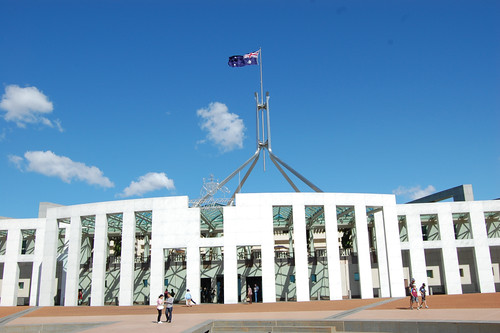 Well not quite, but at least there is some finality on who is responsible for forming Australia's next government.
Well not quite, but at least there is some finality on who is responsible for forming Australia's next government.The pre-occupation of some, we are led to believe, over the last two weeks has been how to resolve a 'dead-heat' result delivered by Australia's voters, with each of the major 'party groupings' having the same number of seats in the lower house. The final say was left to three independents from regional / rural areas of Australia, who normally would have absolutely no influence on the politics of the day - a change, which will hopefully add a bit of spice to an otherwise very bland political landscape.
In my view, the results show that there was very little policy distinction to differentiate the two major parties, and voters probably had an equal dislike for both of the leaders in terms of personalities, or prime minister material potenital. However the ALP (Labor Party) got the luck of the draw with the one distinction that there was - the NBN (for the non-Australian readers, this is the National Broadband Network).
The ALP has a very ambitious and costly ($43bn) plan to roll out a new fibre network to 93% of the population. The Liberal / National coalition on the other hand has a modest $6bn plan which leverages the existing infrastructure, supplemented by some new infrastucture and mobile technology. The distinction is 100gbit vs 12gbit base speeds, and, with the Liberal option, the country areas will most probably have to continue to rely on mobile i.e. second best - again. With the decision on who will govern left with three regional / rural MPs, its no surprise to me that they went with the party that promised new infrastructure in their areas. Oh, yes and there were additional top-up sweeteners, once the "dead-heat" became apparent.
The question is whether new, ground-breaking infrastructure deployment is best left to the private sector, or whether it should involve government. There is a question around economies of scale, where business will never, on its own, invest if it cannot guarantee sufficient demand to get a reasonable return on its investment. Moreover the return should materialise in a foreseeable period. Consequently, if left to business alone, most countries would probably not have the rail infrastructure that they have today, and similarly country Australia would probably not get broadband except via satelite (on a clear day) or mobile, slower technology.
It is true though that there is an element of "build it and they will come". A new railroad makes establishment of new settlements feasible, and I suspect broadband in country areas will facillitate new uses, which may yet obviate the cross-subsidisation of the new infrasstructure by metropolitan area tax payers. As no one likes paying taxes, this is controversial, but may at least lead to a a lasting legacy for the future.
PS: Having just returned from a break outside of a metropolitan area, I witnessed first hand why infrastructure left to the private sector alone is unsatisfactory. In terms of mobile telephony, city dwellers like me have a choice of three or four suppliers, in the country they have one - Telstra; and I wonder if they would have that if Telstra were not once a wholy-owned government entity.
No comments:
Post a Comment